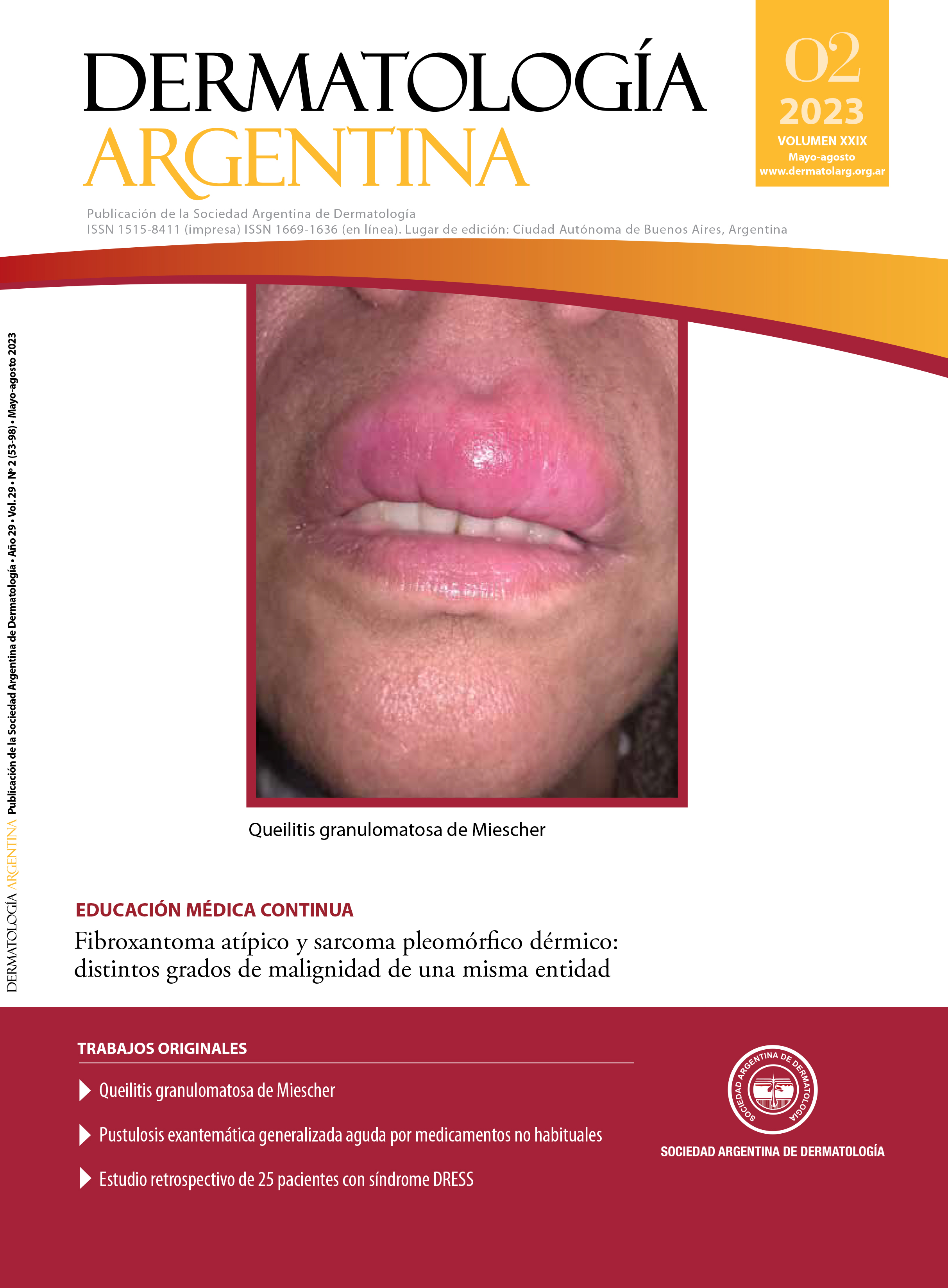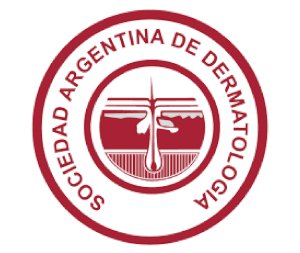Immune-mediated cutaneous adverse effects as markers of good therapeutic response to checkpoint inhibitors, especially in melanoma
DOI:
https://doi.org/10.47196/da.v29i2.2455Keywords:
immune-mediated cutaneous adverse effects, markers of good therapeutic response to checkpoint inhibitors, melanomaAbstract
Oncological treatments with checkpoint inhibitors (PCI) have increased in recent years and reached 43.6% of indications in 2020.
Immune-mediated cutaneous adverse events (EACI) affect up to 40% of patients.
This multicenter study evaluated the implications of EACIs as good prognostic markers of therapeutic response to PCI.
3,731 patients treated with PCI between 2011 and 2020 were analyzed, of which 676 had AECI and the remaining 3,055 (those who did not have such effects) were taken as a control group.
References
I. Zhang S, Tang K, Wan G, Nguyen N, et ál. Cutaneous immune-related adverse events are associated with longer overall survival in advanced cancer patients on immune checkpoint inhibitors: a multi-institutional cohort study. J Am Acad Dermatol. 2023;88:1024-1032.
Downloads
Published
Issue
Section
License
Copyright (c) 2023 on behalf of the authors. Reproduction rights: Argentine Society of Dermatology

This work is licensed under a Creative Commons Attribution-NonCommercial-NoDerivatives 4.0 International License.
El/los autor/es tranfieren todos los derechos de autor del manuscrito arriba mencionado a Dermatología Argentina en el caso de que el trabajo sea publicado. El/los autor/es declaran que el artículo es original, que no infringe ningún derecho de propiedad intelectual u otros derechos de terceros, que no se encuentra bajo consideración de otra revista y que no ha sido previamente publicado.
Le solicitamos haga click aquí para imprimir, firmar y enviar por correo postal la transferencia de los derechos de autor













